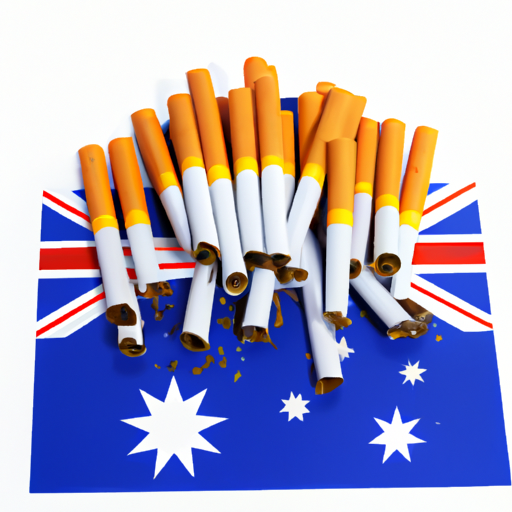
As a resident of Australia, I have always been aware of the strict regulations and high taxes placed on cigarettes in this country. In fact, Australia has one of the toughest tobacco laws in the world, which has resulted in a significant decline in smoking rates over the years. However, the use of cigarettes is still a controversial topic here, with debates surrounding the effectiveness of these measures and the impact they have on smokers. In this article, I will delve into the context of cigarettes in Australia, providing quality information about their availability, regulations, and impact on society.
Cigarettes in Australia are heavily taxed and regulated. This is evident in the high prices of cigarettes, with the average cost of a pack being around $35 AUD. The main reason for this high taxation is to discourage people from smoking and to reduce the overall consumption of tobacco products. Additionally, the money generated from these taxes is used to fund anti-smoking campaigns and healthcare services for those affected by smoking-related illnesses.
For a long time, cigarettes in Australia were only sold in plain packaging, with graphic health warnings covering 75% of the front and 90% of the back of the pack. This law was implemented in 2012 as part of the Tobacco Plain Packaging Act, and it was designed to reduce the appeal of cigarettes, especially to the younger generation. This decision was met with mixed reactions, with tobacco companies arguing that it violated their intellectual property rights. However, studies have shown that plain packaging has been effective in reducing the number of smokers in the country.
Moreover, smoking is prohibited in all enclosed public spaces, including restaurants, bars, and workplaces. This includes outdoor areas such as beaches, parks, and public transport stops. This law, known as the Smoke-free Environment Act, was introduced in 2007 and has been successful in decreasing the exposure of non-smokers to second-hand smoke. The use of e-cigarettes is also heavily regulated in Australia, with the sale, possession, and use of nicotine-containing e-cigarettes being illegal. This is due to the lack of evidence on the long-term health effects of these products.
In addition to these regulations, the Australian government also runs regular anti-smoking campaigns to raise awareness about the dangers of smoking and encourage people to quit. These campaigns often feature graphic images and videos depicting the harmful effects of smoking on a person’s health, such as lung cancer and heart disease. The government also provides resources and support for those trying to quit, such as the Quitline telephone counseling service and nicotine replacement therapy.
Despite these measures, there are still some concerns about the availability of cigarettes in Australia. While they are heavily regulated, cigarettes are still legal and readily available for purchase in most convenience stores, supermarkets, and gas stations. There has been a rise in the sale of illegal tobacco products, such as counterfeit and smuggled cigarettes, which are sold at a lower price than regulated ones. This has been a cause for concern as these products do not undergo the same safety and quality checks as legal cigarettes, potentially putting users at risk.
Furthermore, there is a growing debate about the effectiveness of these strict regulations in reducing smoking rates. While the number of smokers in Australia has decreased over the years, there are still about 2.6 million people who smoke daily. Some argue that these measures only push individuals to find other ways to fulfill their smoking habit, such as turning to e-cigarettes or purchasing illegal tobacco products. There are also concerns about the impact these laws have on small businesses, particularly corner stores and tobacco retailers, who have seen a decline in sales due to the high prices and restrictions on selling cigarettes.
In conclusion, cigarettes in Australia are heavily regulated and taxed, making them one of the most expensive countries to smoke in. The government’s aim is to discourage people from smoking and reduce the overall consumption of tobacco products. While these measures have been successful in decreasing the number of smokers, there are still some concerns about their effectiveness and impact on society. As the debate continues, it is clear that cigarettes will remain a highly controversial topic in Australia, with strict regulations in place to keep their use in check. For more information on cigarettes in Australia, check out cigarettes australia.